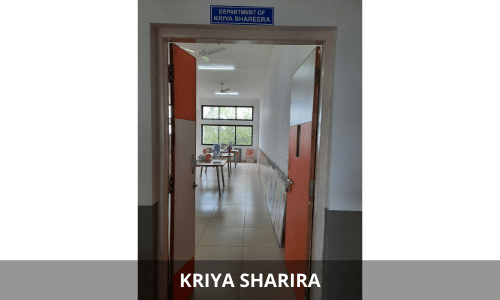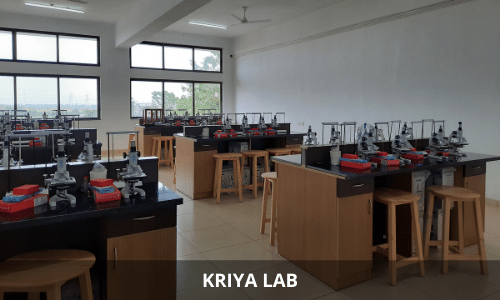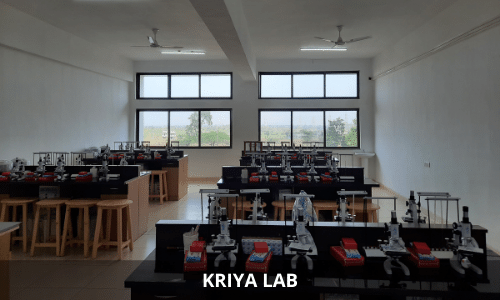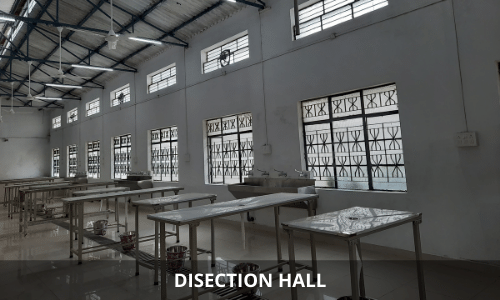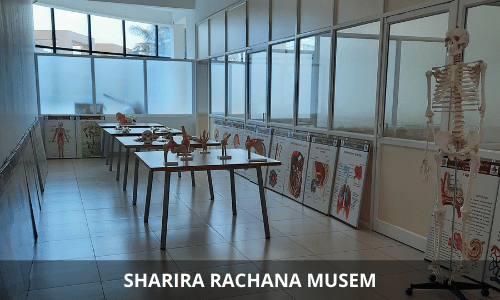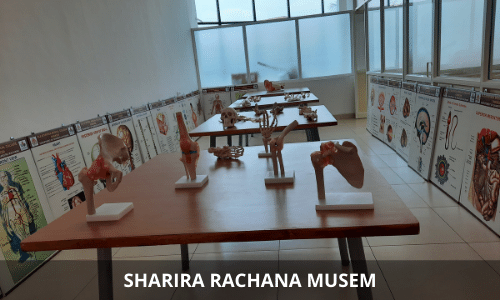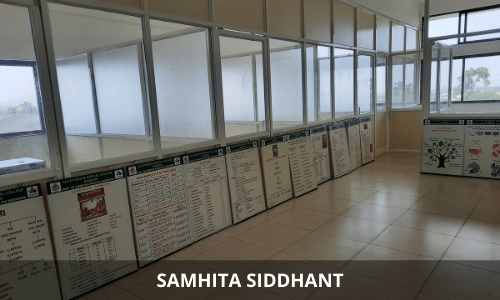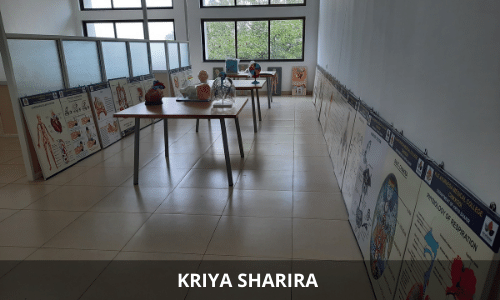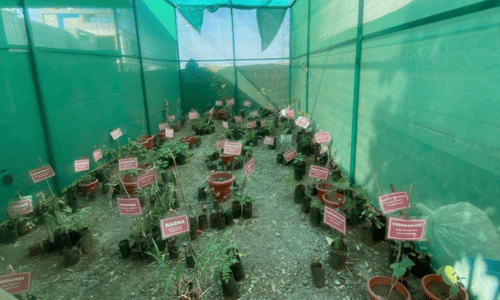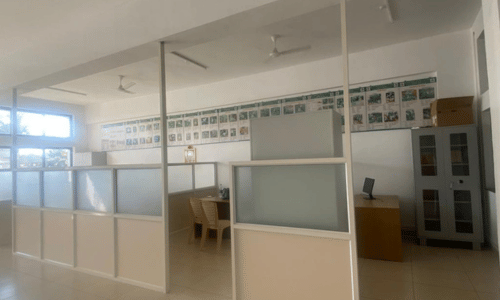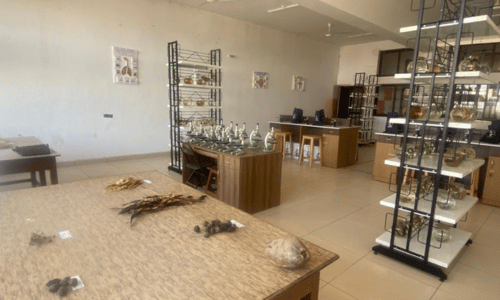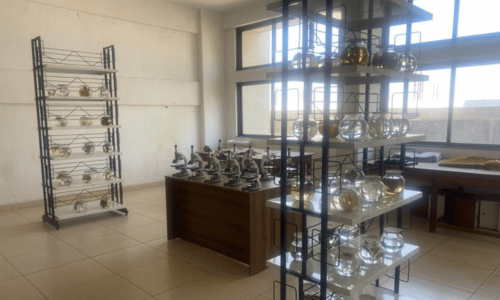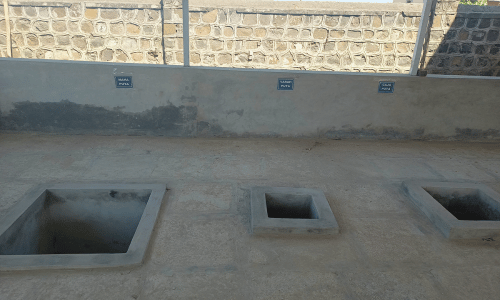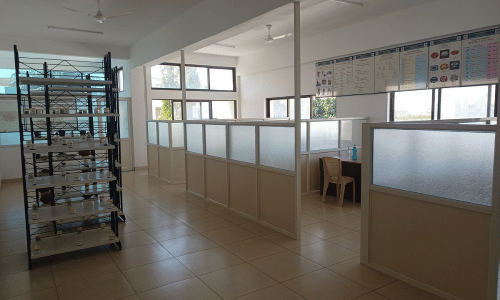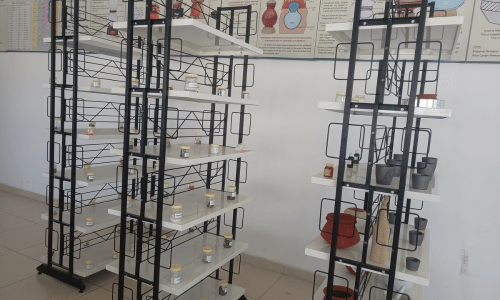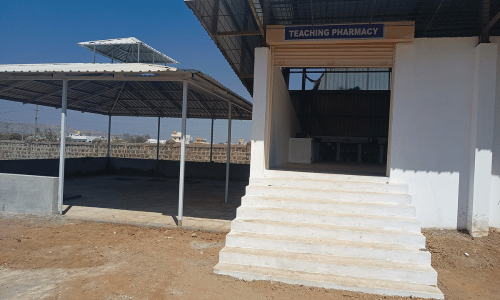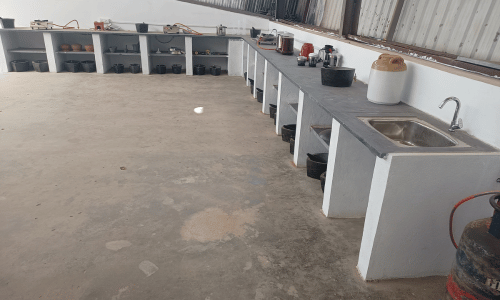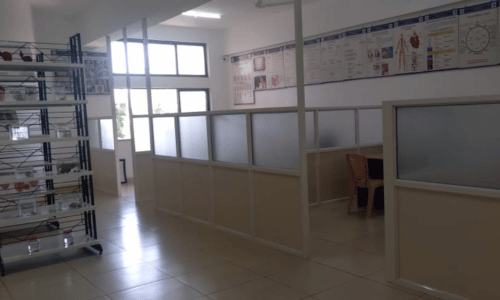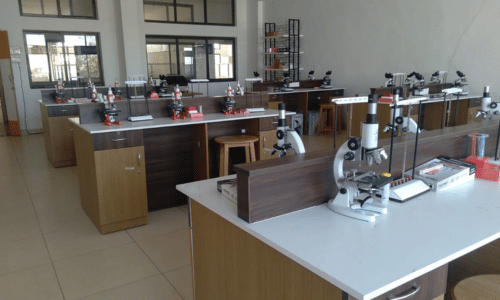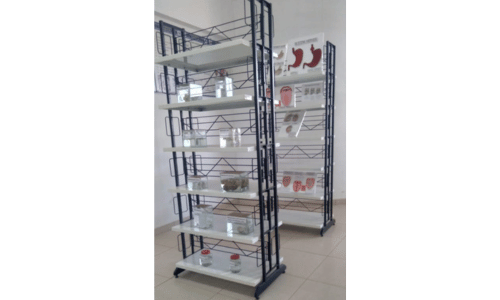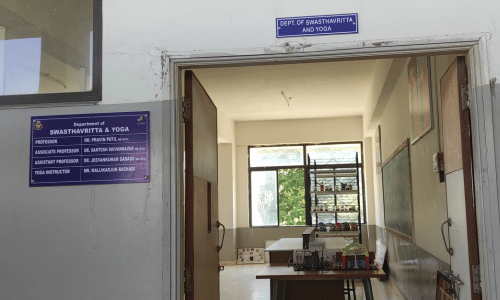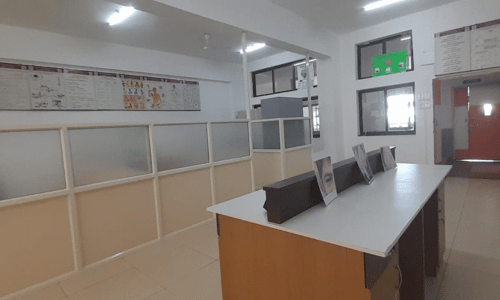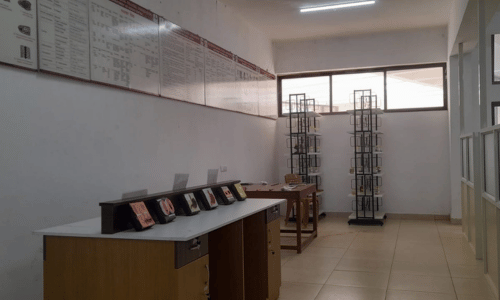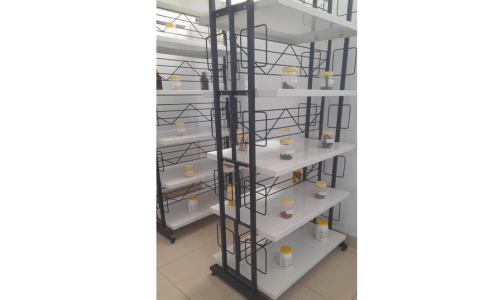First Professional B.A.M.S.
| SL No. | Department | Department Subjects | Equivalent Terms |
|---|---|---|---|
| 01 | Samhita Siddhanta & Sanskrit | Samskritam
Ayurved Ithihas Padartha Vigyan Samhita Adhyayan-1 |
Sanskrit
History of Ayurveda Fundamental Principles of Ayurveda and Quantum Mechanics Study of Ayurveda Classical Text |
| 02 | Rachana Sharira | Rachana Sharira | Human Anatomy |
| 03 | Kriya Sharira | Kriya Sharira | Human Physiology |
Second Professional B.A.M.S
| 04 | Dravyaguna | Dravyaguna Vigyan | Pharmacology and Materia Medica- Herbal |
|---|---|---|---|
| 05 | Rasashastra & Bhaishajyakalpana | Rasashastra evam Bhaishjyakalpana | Materia Medica- Minerals & Metals and Pharmaceutical Science |
| 06 | Roga Nidan & Vikriti Vigyan | Roga Nidan evam Vikriti Vigyan | Methods of Diagnosis, Diagnostic Procedures and Pathology |
| 07 | Agada Tantra | Agada Tantra evam Vidhi Vaidyaka | Clinical Toxicology and Medical Jurisprudence |
| – | Samhita Siddhanta & Sanskrit | Samhita Adhyayan-2 | Study of Ayurveda Classical Text |
| 08 | Swasthavritta &Yoga | Swasthavritta evam Yoga | Lifestyle Management, Public Health and yoga |
Third (Final) Professional B.A.M.S.
| 09 | Kayachikitsa | Kayachikitsa including Manasa Roga, Rasayana evam Vajikarana Atyaikachikitsa | Internal Medicine including Psychiatry, Rejuvenative Medicine, Reproductive Medicine and Epigenetics |
|---|---|---|---|
| 10 | Panchakarma | Panchakarma evam Upakarma | Therapeutic Procedural Management |
| 11 | Shalya Tantra | Shalya Tantra | General Surgery |
| 12 | Shalakya Tantra | Shalakya Tantra | Ophthalmology, Oto-RhinoLaryngology & Oro-Dentistry |
| 13 | Prasuti Tantra & Stree Roga | Prasuti Tantra evam Stree Roga | Gynecology and Obstetrics |
| 14 | Kaumarabhritya | Kaumarabhritya | Pediatrics |
| – | Samhita Siddhanta & Sanskrit | Samhita Adhyayan-3 | Study of Ayurveda Classical Text |
| Atyaikachikitsa | Emergency Medicine | ||
| – | Swasthavritta &Yoga | Research Methodology & Medical Statistics |
Samhita and Siddhanta
The Dept. of Samhita and Siddhanta deals with the principles of physical and metaphysical aspect of life. Ayurveda has established its principles based on the fundamental principles of philosophies of India. Hence it not only aims to prevent and treat the diseases but also guides one to attain salvation.
Department deals with the subjects which provide the profound knowledge of Sanskrit, Fundamental Principles of Samhitas that facilitate the students to understand the principle of diseases and their management, further practical application of the principles in clinical practice.
Rachana Sharira
It deals with structural study of human body through theoretical explanation and cadaveric dissection.
The Rachana Sharira department is fully fledged with all the modern tools and equipments of learning and performing cadaveric dissection. It is well equipped with dissection hall, museum with specimens, departmental library, instruments and cadavers.
- Dissection Hall:
Dissection hall is well equipped for the theoretical as well as practical demonstration. Hall is spacious to accommodate 50 students, well ventilated with good illumination and cadaver tanks to store the cadavers and Dissection tables for performing practical with all audiovisual teaching aids at the hall. - Museum:
The museum is spacious with collection of human organ specimens.
It also consists of good number of models and charts.
The department also provides the bone sets and precast bone models for proper understanding of Osteology.
Kriya Sharira
Kriya Sharira is the core subject which particularly gives insight about nature & function of the human body and its components. In Kriya Sharira, students study about basic principles of Ayurveda like Dosha-Dhatu-Mala, Agni, Srotas, Prakruti and its application. Concepts are emphasized to provide a foundation that is conducive to the development of diagnostic skills and application of physiologic concepts and principles clinically.
- Laboratory:
Well-equipped laboratory with all necessary instruments for the conduction of practical’s, to educate and attain skills about various laboratory findings. - Museum:
Department has a good collection of teaching charts related to both Ayurveda & modern physiology.
System wise models to explain the mechanism in a better way.
Dravyaguna
Dravyaguna is a branch which deals with property, action and therapeutic effects of various medicinal plants (including food and medicine), along with identification, collection, storage and preservation of raw drugs.
- Herbal Garden:
Herbal garden is attached to the department having 200 species, spread across wide area.
Aids in educating cultivation and plantation of medicinal plants through Punarnava nursery.
Rasashastra Evam Bhaishajya Kalpana
It is a unique branch in Ayurveda dealing with preparation of medicines. Along with the knowledge from ancient texts, the branch is updated with modern pharmaceutical techniques to suit the present day needs & trend.
- Teaching pharmacy:
well designed in a wide area to cater the needs of teaching the essentials of processing and formulation knowledge to students. It has all the basic necessary instruments and devices for the students to learn the basics of preparing medicines.
Various herbal & herbo mineral preparations for hospital in house usage are also manufactured here.
Roganidana Evam Vikriti Vigyana
It glints over the concepts propounding causative factors of disease and its pathology which will be leading to manifestation of disease in Ayurveda. It avails of numerous investigatory methods of disease clubbing both laboratorial and radiographic diagnostic modalities in modern and as well as the Ayurvedic perspective.The branch explores the utility of basic concepts in diagnosing the disease and thereby paving ways for treatment.
Swasthavritta and yoga
Swasthavritta and yoga is a specialty which mainly focuses on the preventive aspects of health care management. The care of the health of healthy individual and prevention of disease occurrence is the main focus of our specialty. This specialty can be correlated with preventive and social medicine/ community medicine according to modern medical science.
Agadatantra Evam Vidhi Vaidyaka
Agadatantra or toxicology is a branch of Ashtanga Ayurveda, which includes the science of poisons. It deals with properties, effects and management of poison of animate & inanimate origin. In detail study of Agadas i.e. Visha virodhi Dravyas or Visha virodhi kalpas, which are used since human history itself. It also deals with the law related to poisons. Forensic medicine (Vyavahara Ayurveda) deals with medical aspect of law & Medical jurisprudence (Vidhi vaidyaka) deals with legal aspect of medicine.
Panchakarma
As Ayurveda has effectively pointed out, health is the state of Dosha, Dathu, Agni, and Mala being in their normal ranges, not just the absence of illnesses. Manas (mind), Indriya (sense organs), and Prasanna Atma (soul) are also included. So, the Panchakarma is required to restore Dosha, Dhatu, and Agni to normal. Panchakarma is a Sanskrit term, in that Pancha- Five, Karma – Actions, There are five fold treatments are used for detoxification and rejuvenation of body. The horizon of Panchakarma starts from the five intensive therapeutic modalities namely Vamana, Virechana, Basti, Nasya Karma and Raktamokshana. The Department aims to quality education in the field of Panchakarma to bridge the gap between theory and practical.
Kayachikitsa
Kayachikitsa is the first among the Ashtanga Ayurveda. It deals exclusively with clinical knowledge of classical and general medicine, several diagnostic tools and various treatment modalities.”Chikitsa” means treatment, and “Kaya” means body. The majority of ailments are treated by Kayachikitsa by adjusting the afflicted Dosha, Dhatu, and Agni. Rasayana (rejuvenation), Vajikarana (aphrodisiac) and Manasa roga (Ayurvedic psychiatry) are also the branches of Kayachikitsa. Which are helpful for promoting ultimate wellbeing and healthy offspring, are other ways that Kayachikitsa promotes health in addition to its holistic approach. The department aims to providing quality education and practical training of diseases and their treatments.
Shalya Tantra
Shalya tantra is one of the eight branches of Ayurveda. It is the branch of Ayurveda that deals with general surgery. It includes techniques for treating illnesses through surgery, as well as methods for preventing and diagnosing surgical problems. Shalya tantra explains and demonstrates surgical knowledge and procedures that were performed and used since thousands of years and are useful even today. The main focus of the department is to make the students aware of the fundamentals of surgical diseases, various disabilities and deformities, traumas, fractures, and intense training in general surgical procedures.
Kaumarabhritya
Kaumarabhritya one among the Ashtanga Ayurveda dedicated to the healthcare of children, including pregnancy, from conception to adolescence and is analogous to modern Paediatrics. The department conducts traditional programs like “Suvarna Bindu Prashana” to improve a child’s immunity, intelligence, and general development. The department aims to train the graduates to cater the health needs of the children through proper classical training.
Prasuti and Striroga
Prasuti and Stree Roga focuses on Women’s health and the treatment of gynaecological problems.
Prasuti Tantra- deals with childbirth and pregnancy, including prenatal care, labor care, and postpartum care.
Stri Roga- deals with gynaecological disorders, including menstrual disorders, reproductive tract disorders, breast diseases, and infertility.
It creates health awareness regarding dietary habits, lifestyle modifications to prevent gynaecological ailments and maintenance of personal hygiene resulting in reduction of morbidity and mortality rate. The department aims to students regarding training in pre conception counselling, ante-natal, natal, post natal care, treatment of gynaecological disorders and surgical procedures.
Shalakya Tantra
It is one among the Ashtanga Ayurveda for conditions affecting the ears, nose, throat, eyes, teeth, head, and neck that occurs above the shoulder is the Shalakya tantra. Shalakya tantra branches include Shiroroga-chikitsa (cranial disorders), Mukharoga-chikitsa (oral hygiene, dentistry, and laryngology), Karna-chikitsa (otology), Nasa-chikitsa (rhinology), and Nethra-chikitsa (ophthalmology). Shalaka (Probe) is utilized in Shalakya tantra to treat certain illnesses. Thus, the topic is known as “Shalakya tantra.” Shalakis is the name of the person providing treatment. The Department aims to prepare the graduates to cater the surgical and medical care in the field of Shalkya tantra.

